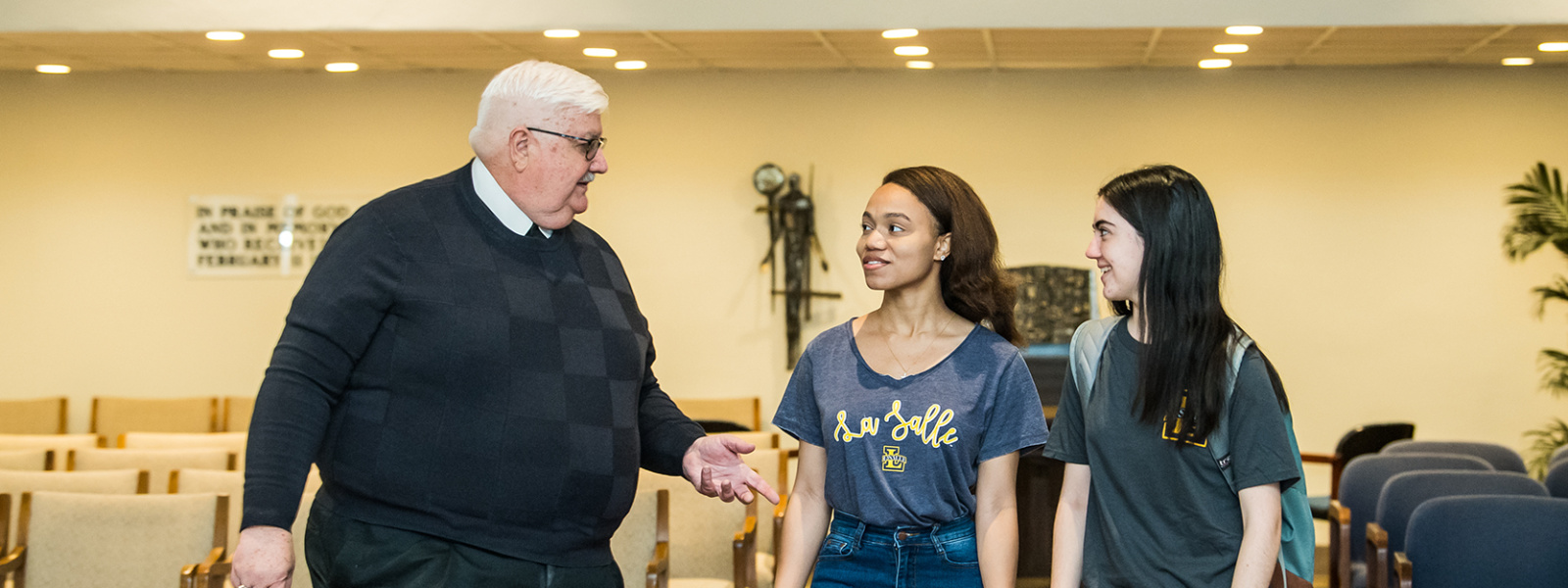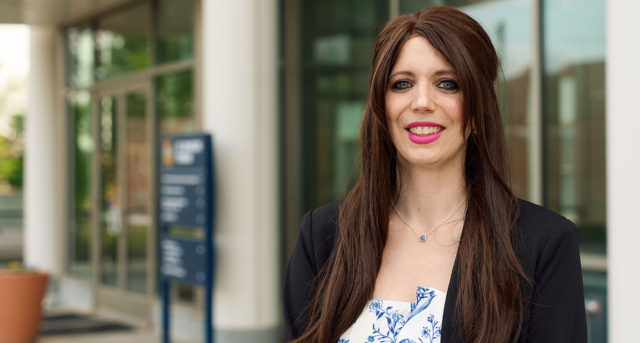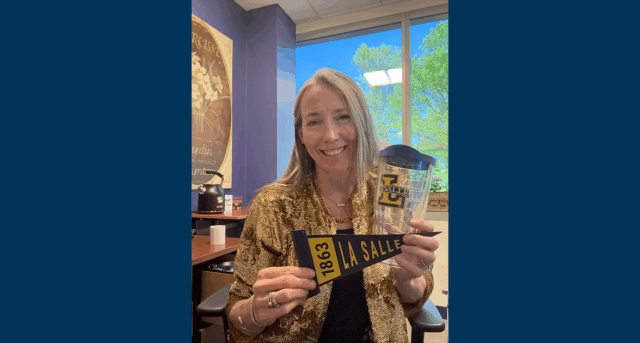La Salle University

Religion (B.A.)
- Adult/Evening Undergraduate, Major, Minor
- 4-year, On Campus
What You’ll learn
Religion and Theology majors at La Salle gain critical thinking skills and a foundational knowledge to engage with and understand differences and to effectively respond to social injustice. Graduates of the Religion and Theology program go on to graduate and law school, work in the nonprofit sector, become social workers, and work for community-based organizations. They are ministers, teachers, and even project managers in the business world.
Why Study Religion at La Salle?
As a Religion major, you’ll have unique opportunities for experiential learning and to work towards meaningful social change in Philadelphia. Our POWER University Initiative and Inside-Out Program allows students to immerse in community organizing and to take courses in correctional facilities with incarcerated students to examine fundamental issues of social justice.
The Religion curriculum embodies the four commitments of Lasallian education through values of curiosity, empathy, pluralism, and imagination. We build community by nurturing inclusive classroom and departmental spaces and by cultivating relationships within and beyond the boundaries of the University.
Highlighted Courses
REL 210 – Mysteries of the Hebrew Scriptures
This course examines the Jewish canonical writings in their historical and cultural contexts, introduces the scholarly tools employed to discover the meaning(s) of the documents, and investigates the rich and complex development of the religion of ancient Israel and biblical Judaism(s). The deutero-canonical writings, those not included in the Jewish canon, will also be discussed.
REL 241 – Women in Religion
Are religions necessarily patriarchal? This course introduces students to the diversity of women’s experiences of, and contributions to, religious belief and practice in at least one of the world’s religious traditions. Topics may include feminist understandings of the divine, the role of women in the origins and development of religious traditions, feminist interpretations of sacred texts, feminist spiritualities, and historical and contemporary efforts by women to reform religious traditions.
REL 353 – Social Justice and Community Organizing
This course integrates community service with issues of justice from the perspective of theology. Its purpose is to provide not only analysis, but also a deeper appreciation and respect for the disadvantaged, and a more long-lasting commitment to enter into solidarity with them in their struggle for justice. Through readings, reflection, discussion, and a community service project, this course allows students to gain a more comprehensive understanding of the social, political, spiritual, and economic causes of injustice and how their service influences the cause of social justice.
Meet the Faculty
Our students receive a top-notch education that is well-rounded and balanced. Not only are they taught the essential theoretical elements of their discipline, but they are grounded with real-world, marketable job skills such as critical-thinking and problem-solving skills, interpersonal skills, and skills relating to workflow. Many pursue advanced degrees and/or careers upon graduation in a wide range of fields including law, business, elementary and secondary education, communications and marketing, non-profit, and government.
Career Opportunities
According to the Bureau of Labor Statistics, the median annual wage is $55,000.
As college students, I think we often forget there is life right outside our campus. (This course) was a wonderful opportunity to speak with Belfield residents about their experiences living in this area. I learned from this course that Belfield is a neighborhood with a deep, rich history that must be protected and respected … and that I am attending a university that is driven to foster change and make a positive impact.

Amber Murray, ‘25, balanced full-time work, chemotherapy, and clinicals—proving that compassion and courage go hand in hand.

Alexis Sanchez, ’25, La Salle’s 2025 undergraduate commencement speaker, found her voice by saying yes—even when life said no.

For Crystal MacNeill, ’92, La Salle was “love at first sight,” and that love has only grown. Crystal MacNeill, ’92, arrived at La Salle thanks to the suggestion of a […]